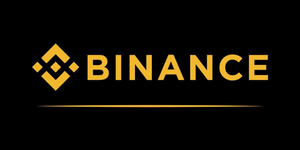-
Bitcoin Price: $98,858
6.13%
-
All-Time High: $108,135.00
8.29%
- 24h High / 24h Low: $99,304 / $92,442
-
Market Cap: $1,957,454,154,330
6.17%
- 24h Volume: $54,240,817,828
The technical aspects of Bitcoin: How the digital currency works

Source: Unsplash.com
Bitcoin is a decentralized, digital currency that allows for anonymous transactions to take place between users without the need for a central authority. It was created in 2009 by an unknown individual or group using the pseudonym Satoshi Nakamoto. In comparison to traditional fiat currencies, Bitcoin is considered to be more advanced due to its technical features and decentralized nature.
Technical Aspects of Bitcoin
One of the key technical features of Bitcoin is its use of the blockchain, which is a distributed ledger that records all transactions that take place on the network. The blockchain is composed of blocks, which are records of transactions that have been verified by the network. Each block contains a unique code, called a hash, that allows it to be linked to the previous block in the chain. This creates a permanent, unchangeable record of every transaction that has ever occurred on the network.
Another technical aspect of Bitcoin is its use of cryptography to secure transactions. Cryptography is the practice of using complex mathematical algorithms to encrypt and decrypt data. In the case of Bitcoin, cryptography is used to verify the authenticity of transactions and to prevent the same Bitcoin from being spent more than once.
Decentralized Nature of Bitcoin
Unlike traditional fiat currencies, which are controlled by a central authority, such as a government or bank, Bitcoin is managed by a network of computers around the world that run the Bitcoin software. This network is called the Bitcoin network, and anyone can join it by running the Bitcoin software on their computer. The decentralized nature of Bitcoin means that it is not subject to the same regulations and restrictions as traditional currencies, and it gives users greater control over their own funds.
Bitcoin Mining
The decentralized nature of Bitcoin also introduces a unique technical challenge: the need to reach consensus on the state of the blockchain. This is done through a process called Bitcoin mining.
Mining is the process by which transactions are verified and added to the public ledger, known as the blockchain, and also the means through which new bitcoins are released. Anyone with access to the internet and suitable hardware can participate in mining. The mining process involves compiling recent transactions into blocks and trying to solve a computationally difficult puzzle. The participant who first solves the puzzle gets to place the next block on the blockchain and claim the rewards. The rewards, which incentivize mining, are both the transaction fees associated with the transactions compiled in the block as well as newly released bitcoin.
To be successful in mining, one needs to have both powerful hardware and cheap electricity. The reason for this is that the difficulty of the puzzles increases to ensure that blocks are found at a constant rate, regardless of the total mining power on the network. As a result, mining operations have become increasingly specialized and are typically performed in large warehouses with low-cost electricity.
Due to the specialized nature of the equipment, and the increasing difficulty of the puzzles, individual miners have turned to pools, where their combined computing power is used to increase the likelihood of finding a block. Once a block is found, the rewards are distributed among the pool members based on the amount of computing power they contributed.
Benefits of Bitcoin
Overall, the technical features and decentralized nature of Bitcoin make it a technically advanced digital currency compared to traditional fiat currencies. Its use of the blockchain and cryptography provide a secure and transparent way of conducting transactions, and its decentralized nature offers users greater financial freedom.
Disclaimer
This article does not provide investment advice. Historical cryptocurrency data is not a guarantee of future market developments. The author may hold several of the cryptocurrencies mentioned in this article.
Read more About
THIS WEEK’S
Trending Posts
-
 September 12, 2024
September 12, 2024The most common misconceptions about Bitcoin and cryptocurrency
-
 September 4, 2024
September 4, 2024Stablecoins: Financial stability or centralization?
-
 August 11, 2024
August 11, 2024Exploring the benefits and potential uses of Litecoin
-
 August 8, 2024
August 8, 2024Five reasons why Bitcoin is superior to FIAT money
-
 July 15, 2024
July 15, 2024Dogecoin: the internet's favorite cryptocurrency
SPREAD THE WORD
Share this Post
HAND-PICKED
Curated Cryptocurrency Posts
Didn't find the answer you were looking for?
Feel free to check our cryptocurrency market data or our comprehensive blockchain glossary.
















